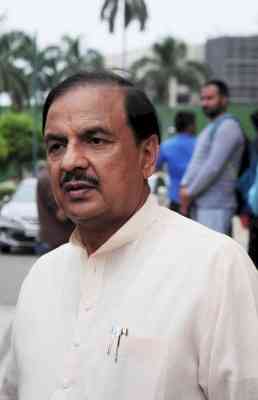India drops to 140th rank in World Freedom Index, lowest since 2002
Author(s): Harish K. MongaThe Author. · Violence against Journalists and Netizens behind fall · Media must introduce an internal scheme of checks and balances Freedom of the press or freedom of the media is the freedom...


The Author.
· Violence against Journalists and Netizens behind fall
· Media must introduce an internal scheme of checks and balances
Freedom of the press or freedom of the media is the freedom of communication and expression through mediums including various electronic media and published materials. While such freedom mostly implies the absence of interference from an overreaching state, its preservation may be sought through constitutional or other legal protections.
India has dropped nine places to the 140th rank in the list of 179 countries in the latest World Press Freedom Index and it is the lowest for the "world's biggest democracy" since 2002.
As last year, the list is topped by three European countries – Finland, Netherlands and Norway. Turkmenistan, North Korea and Eritrea continue to be at the bottom of the list as has been in the last three years. China (173rd, +1) shows no sign of improving. Its prisons still hold many journalists and netizens (A user of the Internet, esp. a habitual or avid one, while increasingly unpopular Internet censorship continues to be a major obstacle to access information.
In fact, the Press Freedom Index published by Reporters Without Borders does not take direct account of the kind of political system but it is clear that democracies provide better protection for the freedom to produce and circulate accurate news and information than countries where human rights are flouted according to Reporters Without Borders secretary-general Christophe Deloire.
Press is considered to have duty towards the society not only to educate, cultivate and reflect public opinion but also to raise its voice against things which are wrong and likely to hurt the public, their rights and welfare. It serves as the watchdog of the society and keeps an eye on everything.
Today, the media in India largely free to write and show what it wants but with certain restrictions, as per the provisions of the Constitution of India. This freedom has been achieved mainly due to four factors:
Firstly, the people’s support for a vibrant, fearless and free media has been essential. Secondly, the journalist community has struggled for a free media over the past many decades. Third factor is globalisation and the media boom. Fourthly, technological innovations in the media field.
The emergence of new information and communication technologies has been instrumental in helping the media to achieve its present-day freedom. The objective of media freedom can be realised only when the public trust and confidence reposed in the media is respected and protected by the media itself by acting as a true watchdog, keeping an eye on the government on behalf of the public.
The silent consent and mandate of the public to the media grants the latter absolute power to inquire and question the government actions on the people’s behalf.
In dictatorships, news providers and their families are exposed to ruthless reprisals, while in democracies news providers have to cope with the media's economic crises and conflicts of interest. While their situation is not always comparable, we should pay tribute to all those who resist pressure.
According to the report, in almost all parts of the world, influential countries including India that are regarded as "regional models" have fallen in the index.
The Indian Constitution, while not mentioning the word "press", provides for "the right to freedom of speech and expression" (Article 19(1) a). However this right is subject to restrictions under sub clause (2), whereby this freedom can be restricted for reasons of "sovereignty and integrity of India, the security of the State, friendly relations with foreign States, public order, preserving decency, preserving morality, in relation to contempt, court, defamation, or incitement to an offense.
Laws such as the Official Secrets Act and Prevention of Terrorist Activities Act (PoTA) have been used to limit press freedom. Under PoTA, person could be detained for up to six months for being in contact with a terrorist or terrorist group. PoTA was repealed in 2006, but the Official Secrets Act 1923 continues.
In India, the "world's biggest democracy", the authorities insist on censoring the Web and imposing more and more taboos, while violence against journalists goes unpunished and the regions of Kashmir and Chhattisgarh become increasingly isolated.
A free media is always an indicator of the rank of countries in the comity of nations. Media has been given power in India, and it would do well not to abuse it. The media, as an institution and fourth estate, is accountable to the public and responsible for its actions.
Media practitioners should stop thinking they are above the law. Media must introduce an internal scheme of checks and balances though this is an uphill task.
(Disclaimer: The views expressed by the author in this article are his own and do not necessarily reflect the views of City Air News.)

 cityairnews
cityairnews 













